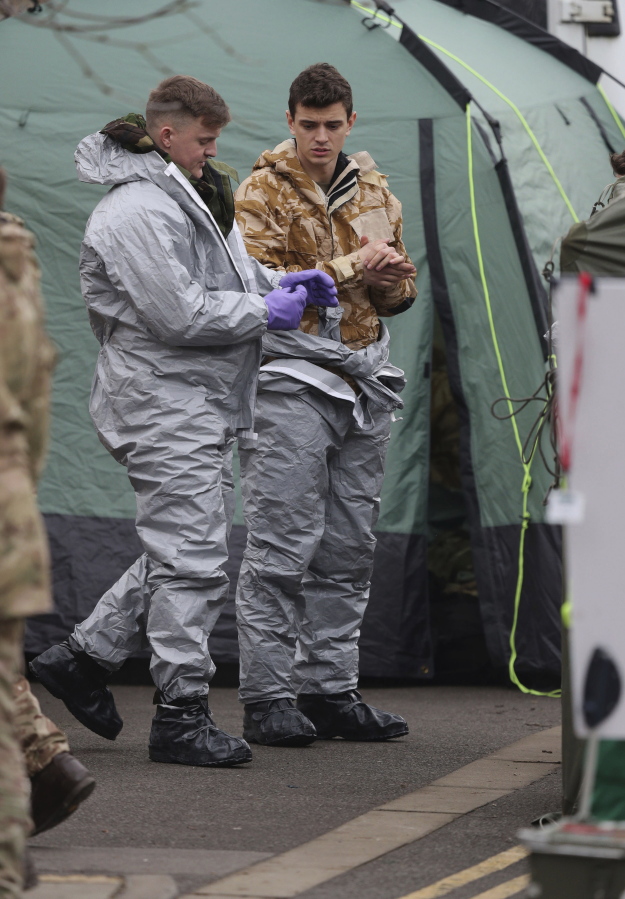LONDON — Russia is “highly likely” to blame for poisoning a former spy and his daughter with a military-grade nerve agent, British Prime Minister Theresa May said Monday, demanding that Moscow give a compelling explanation or face “extensive” retaliation.
May told lawmakers in a strongly worded statement that without a credible response from Russia by the end of today, Britain would consider the attack on Sergei Skripal and his daughter in a quiet English city “an unlawful use of force by the Russian state against the United Kingdom.”
“There can be no question of business as usual with Russia,” she said, without saying what measures Britain might take.
Russian Foreign Ministry spokeswoman Maria Zakharova dismissed May’s allegations as a “circus show in the British Parliament.”
Skripal, 66, and his 33-year-old daughter, Yulia, remain in critical condition after being found unconscious March 4 in Salisbury. A police detective who came in contact with them is in serious but stable condition.
May said British scientists have determined that Skripal and his daughter were poisoned with Novichok, a class of nerve agent developed by the Soviet Union near the end of the Cold War.
She said it was “highly likely” the substance came from Russia, and there were two possible explanations.
“Either this was a direct act by the Russian state against our country, or the Russian government lost control of this potentially catastrophically damaging nerve agent and allowed it to get into the hands of others,” she said.
May said Britain had given the Russian ambassador in London a deadline of today to explain which version is true. She said Russia must also “provide full and complete disclosure” of its Novichok program to the Organization for the Prohibition of Chemical Weapons, the oversight body for the international chemical weapons convention.
May spoke in the House of Commons after she chaired a National Security Council meeting to hear the latest evidence in the case. She has been under mounting pressure to hit Russia with sanctions, diplomatic expulsions and other measures in response to the poisoning, the latest in a string of mysterious mishaps to befall Russians in Britain in recent years.
May said Britain would consider tough action if Russia’s explanation is inadequate, though she didn’t give details.
She said Britain would be prepared to take “much more extensive measures” than the expulsions and limited sanctions imposed after the death of former Russian agent Alexander Litvinenko, who was poisoned by drinking tea laced with radioactive polonium in London in 2006.
“We will not tolerate such a brazen attempt to murder innocent civilians on our soil,” May added.
The White House said the use of the nerve agent “is an outrage” but wasn’t ready to say that Russia was responsible.
Spokeswoman Sarah Huckabee Sanders called the poisoning “reckless, indiscriminate and irresponsible,” adding that the U.S. stands by its ally.



